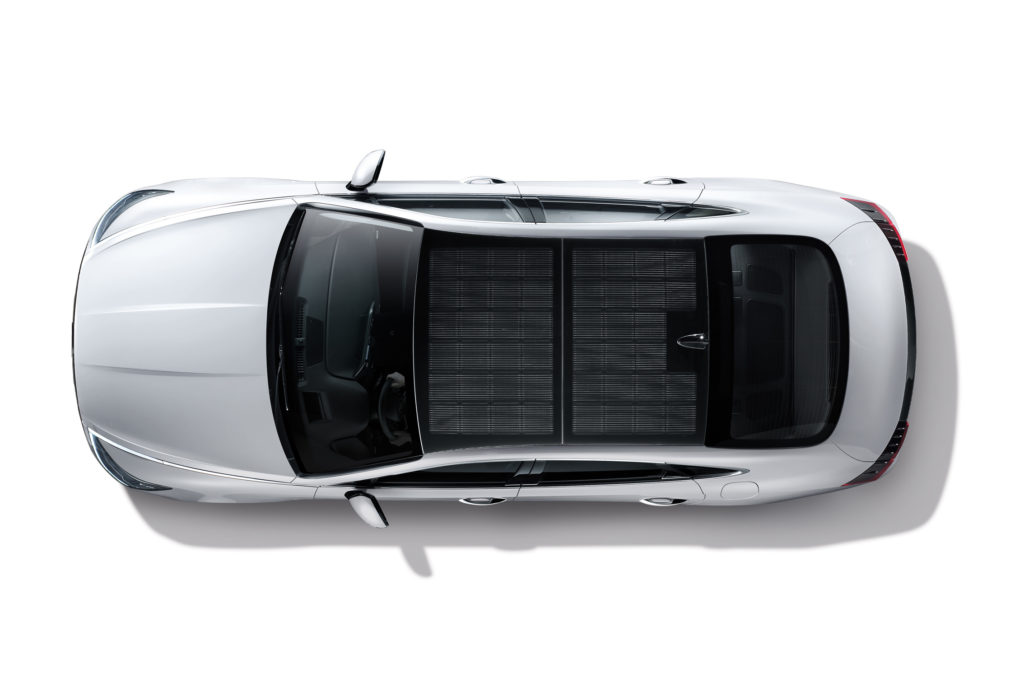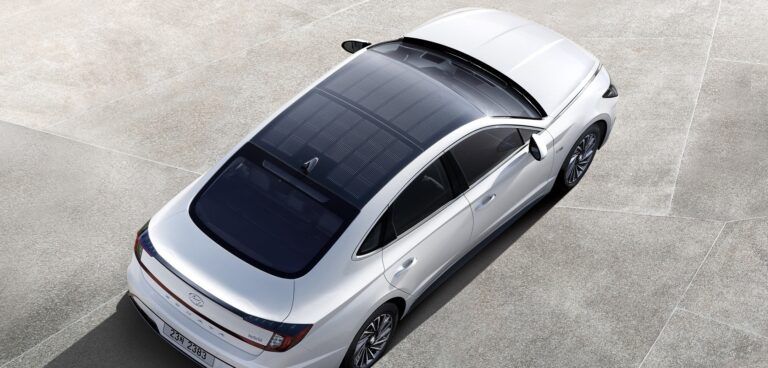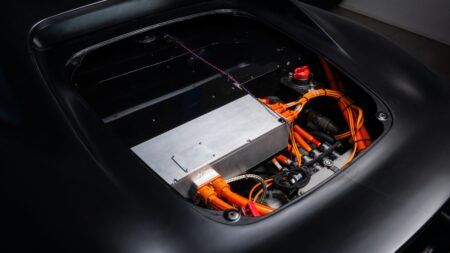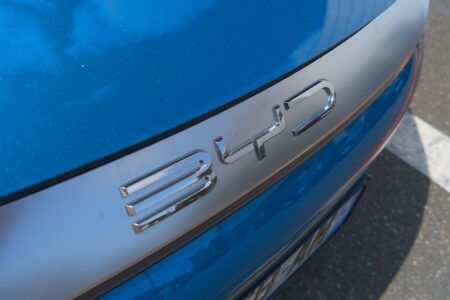Hyundai has revealed its first-ever solar powered car, which uses panels installed on the roof to charge the vehicle’s batteries even while driving.
The new Hyundai Sonata Hybrid employs an eco-friendly solar roof solution to provide additional electrical power, as well as increase fuel efficiency and driving range.
The solar system includes a structure of silicon solar panels that are said to be able to charge 30% to 60% of the battery per day. Combined with six hours of daily charging, it is expected to increase drivers’ travel distance by an extra 1,300 km annually.

The system is composed of a solar panel and a controller. Electricity is produced when solar energy activates the solar panel’s surface, which converts this energy by using photons of light from the sun. This creates the electron-hole pairs in silicon cells, which generate solar electricity. The electricity from this process is converted to the standard voltage by the controller, then stored in the battery.
“Solar roof technology is a good example of how Hyundai Motor is moving towards becoming a clean mobility provider. The technology allows our customers to actively tackle emissions issue” said Heui Won Yang, senior vice president and head of Body Tech Unit of Hyundai Motor Group. “We are striving to further expand the application of the technology beyond eco-friendly vehicle line up to vehicles with internal combustion engine.”





